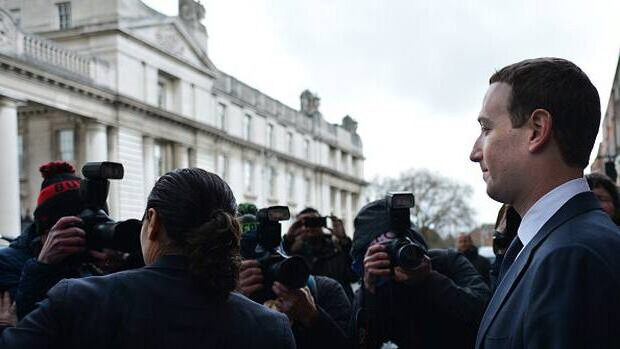OPINION, NZ Herald, 10 April 2019.
We are about to feel a wave of positivity across New Zealand as BP’s clever marketing gimmick, the ‘Thank You’ button, is unleashed on cars nationwide. Imagine a dystopian future in which mega-corporations have unfettered control of what information people consume, free of government regulation but vulnerable to the abuse of radical political activists, terrorists and cynical commercial entities.
In this dark future, murky international forces plot to manipulate the course of elections worldwide. Some of these are governments, others are political mavericks who seek to disrupt the liberal world order. The population seem oblivious to it all, largely passive about the way in which they are being manipulated. What will save them?
No, it’s not 2119, it’s 2019. We are here and currently the new digital empires (ie Facebook, Google, YouTube, Twitter etc) are uncontrolled, anarchically doing what they think is best to protect us from ourselves but vulnerable to exploitation by others. We are about to feel a wave of positivity across New Zealand as BP’s clever marketing gimmick, the ‘Thank You’ button, is unleashed on cars nationwide.
Facebook CEO Mark Zuckerberg has now called for governments to take a role in controlling how the internet is used. In an open letter published internationally, Zuckerberg said: “Lawmakers often tell me we have too much power over speech, and frankly I agree”. He believes rules should be the same for all websites, and has focused on harmful content, election integrity, privacy and data portability. And governments, globally, are finally responding. The Australian government is in dialogue with the global digital empires around delaying livestreams, hiring more moderators, scrutinising “nefarious” websites, and encouraging users to report objectionable videos; and applying big penalties like prison sentences and large fines, if terrorist content isn’t removed quickly on social media platforms.
The British government has just published a wide-ranging white paper to “make the UK the safest place in the world to be online”, targeting web content including child exploitation, false news, terrorist activity and extreme violence. There’s the possibility that top executives of major tech companies could be held directly liable for failing to police their platforms.
New Zealand is behind the eight ball, and the Government’s most recent expressed desire to seek “an international response” is clearly not the view of other countries who are simply getting on with it. If we can act this fast on guns, let’s see Government move quickly to draw together a white paper to protect us from how the digital empires can be exploited by extremists, and capitalise on public unease and keep the pressure on the problem.
There are three key areas that our own Government needs to address with the global tech giants. First, the spreading of hate, violence and exploitation via digital platforms. Facebook, Google, YouTube and others apply smart algorithms to target us for advertising. These can be adapted to hunt down what we deem anti-society. We just need to define what we mean by hate speak, violence and exploitation.
Second, the malicious use of digital platforms to spread political misinformation (fake news) and to allow political radicals to hijack debate. Last week, the UK’s Guardiannewspaper revealed over £1m ($2m) of recent pro-Brexit advertising by a lobbying firm that deployed ads pretending to be concerned members of the public applying pressure to ensure MP’s supported an exit deal or no deal. To contextualise this, this budget was more than all British political parties and the government spent in the last six months. The digital empires need to be legally obliged to identify and block this malign use of their platforms.
Third, they need to be transparent about how our data is being used. We are entering an era where data is becoming increasingly valuable, and recent events and the Cambridge Analytica revelations demonstrate that we can’t take our digital privacy for granted. New Zealand has not caught up yet with legislation to protect our data, although it is being worked on. We are well behind the EU with GDPR. The reality is that the global digital empires cannot be expected to self-0regulate enough to keep us safe; because what are their boundaries when faced with the capricious nature of boards, exec team and shareholders wanting to maximise revenue? Mark Zuckerberg, often painted as a regular nerdy guy who netted billions with a great idea, is probably largely that – but also probably bitten by the business imperative to grow and make more money for him and shareholders.
In New Zealand, directors are called to account for business failings. We should now be preparing legislation to ensure that equally we can pursue these global digital empires if they fail our standards, but we also need to enshrine what our “rulebook” is so they have something to measure their efforts against. We don’t need to wait for the rest of the world.
– Ben Goodale is a New Zealand advertising executive with many years experience in the use of data and digital.
This comment article previously appeared in the New Zealand Herald, 10 April 2019.




